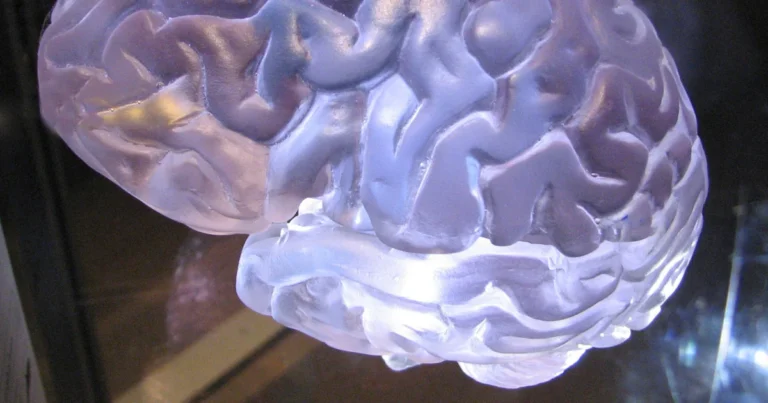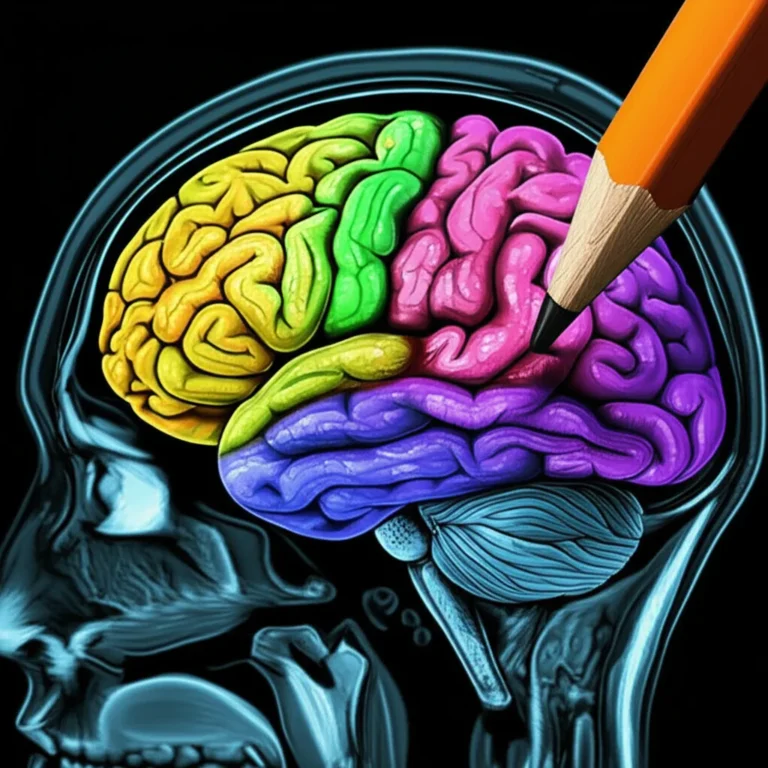Support our educational content for free when you buy through links on our site. Learn more
Am I Smart if My IQ Is 123? Unpacking the Truth (2026) 🧠
Ever wondered if an IQ score of 123 really means you’re “smart”? You’re not alone! Many people hit this number on their IQ tests and immediately start questioning what it says about their intelligence, potential, and even future success. Spoiler alert: an IQ of 123 places you well above average, but there’s a lot more nuance behind that number than you might think.
In this article, we’ll dive deep into what an IQ of 123 truly means, how it compares to other IQ classifications, and why intelligence is so much more than just a number. We’ll also explore famous people with similar IQs, bust common myths about IQ testing, and share expert tips on boosting your cognitive skills beyond the test. Curious if you’re in the “gifted” range or just “above average”? Stick around — the answers might surprise you!
Key Takeaways
- An IQ of 123 is above average, placing you in roughly the top 10–15% of the population.
- IQ tests measure specific cognitive skills but don’t capture creativity, emotional intelligence, or practical smarts.
- Different IQ classification systems may label 123 as “High Average” or “Superior,” depending on the test.
- IQ scores can fluctuate slightly and don’t guarantee success — motivation and social skills matter too.
- Famous successful people often have IQs in the 120–130 range, proving that genius isn’t the only path to achievement.
- You can boost your cognitive abilities through brain training, lifelong learning, and healthy habits.
Ready to find out exactly what your IQ 123 means and how to make the most of it? Let’s get started!
Table of Contents
- ⚡️ Quick Tips and Facts About IQ 123
- 🧠 Understanding IQ Scores: What Does 123 Really Mean?
- 📜 The Evolution of IQ Testing and Intelligence Measurement
- 🔢 7 Key Differences in IQ Classification Systems Explained
- 📊 IQ Classification Tables: Where Does 123 Fit In?
- 📚 Historical IQ Classifications: Then vs. Now
- 🚦 What IQ 123 Tells Us About Cognitive Strengths and Weaknesses
- 🌟 High IQ vs. Average IQ: Is 123 Considered Smart?
- 🧩 Beyond IQ: Emotional Intelligence and Other Smartness Factors
- 🧪 How Reliable Are IQ Tests? Debunking Myths and Misconceptions
- 🎯 Practical Implications: What Can You Do With an IQ of 123?
- 🧑 🏫 Famous People With IQs Around 123: Inspiration or Just Numbers?
- 💡 Tips to Boost Your Cognitive Skills Beyond IQ Scores
- 📚 Recommended Reading and Resources on IQ and Intelligence
- 🔍 Frequently Asked Questions About IQ 123
- 📑 Reference Links and Scientific Sources
- 🎉 Conclusion: So, Are You Smart with an IQ of 123?
⚡️ Quick Tips and Facts About IQ 123
If you’re wondering, Is the 123 IQ test free? Discover 10 Key Insights 2024, you’re already on the right track to understanding what this score means. At Free IQ Tests™, we’ve seen thousands of people ask: “Am I smart if my IQ is 123?” The short answer: ✅ Yes, you are above average! But let’s unpack that carefully.
Quick Facts About IQ 123
- IQ 123 is above average intelligence, typically classified as “High Average” or “Superior” depending on the test.
- The average IQ score is 100, with a standard deviation of 15. So 123 is roughly 1.5 standard deviations above average.
- About 10-15% of the population scores in this range — you’re in the top 15%!
- IQ tests measure reasoning, problem-solving, pattern recognition, and abstract thinking — not everything about intelligence.
- Emotional intelligence, creativity, and motivation also play huge roles in “being smart.”
- IQ scores can fluctuate slightly due to test conditions, practice, and test type.
Why Does This Matter?
Knowing your IQ score helps you understand your cognitive strengths and areas for growth. But remember, IQ is a tool, not a label. It’s like knowing your car’s horsepower — useful, but it doesn’t tell you how good a driver you are!
For more on IQ testing basics, check out our Free IQ Tests category and IQ Test FAQ.
🧠 Understanding IQ Scores: What Does 123 Really Mean?
Let’s dive deeper into what an IQ score of 123 actually represents. IQ, or Intelligence Quotient, is a standardized score designed to compare your cognitive abilities to the general population.
The IQ Scale in a Nutshell
- Average IQ: 100
- Standard Deviation: 15 points
- Your Score: 123 (about 1.5 SD above average)
This means you scored better than roughly 87% of people who take the test. Pretty impressive! But what does that translate to in real life?
Cognitive Abilities Reflected by IQ 123
- Strong verbal reasoning and vocabulary skills
- Above-average logical and mathematical problem-solving
- Good spatial awareness and pattern recognition
- Quick abstract thinking and adaptability
What IQ Tests Don’t Measure
- Emotional intelligence (EQ)
- Creativity and innovation
- Practical skills and wisdom
- Motivation and perseverance
The Takeaway
An IQ of 123 means you have a solid cognitive foundation to excel in many intellectual tasks. But your success depends on how you apply your intelligence, not just the number itself.
For more on how IQ scores relate to career and life success, explore our IQ and Career Development articles.
📜 The Evolution of IQ Testing and Intelligence Measurement
IQ testing has a fascinating history that shapes how we interpret scores like 123 today.
Origins of IQ Testing
- Alfred Binet (1905): Developed the first practical intelligence test to identify children needing educational support.
- Lewis Terman (1916): Adapted Binet’s test into the Stanford-Binet IQ test, introducing the IQ formula (mental age/chronological age × 100).
- Wechsler Scales (1939 onward): Developed WAIS, WISC, and WPPSI, which use deviation IQ scores based on population norms.
Modern IQ Tests
- Use normed samples and standard deviations to compare individuals fairly across ages.
- Include multiple subtests measuring verbal, numerical, spatial, and working memory skills.
- Examples: Wechsler Adult Intelligence Scale (WAIS-IV), Stanford-Binet 5th Edition, and culture-fair tests like the Raven’s Progressive Matrices.
The Flynn Effect
IQ scores have risen worldwide over the 20th century due to better nutrition, education, and environment — a phenomenon called the Flynn effect. However, recent studies suggest this trend may be plateauing or reversing in some countries.
Why This Matters for IQ 123
Your score is a snapshot influenced by the test type, norms, and even when you took it. So, an IQ of 123 today might not mean exactly the same as 50 years ago.
For a deep dive into IQ test history, visit Wikipedia’s IQ classification page.
7 Key Differences in IQ Classification Systems Explained
Did you know that IQ classifications vary depending on the test and organization? That’s why your IQ 123 might be called “High Average” on one test and “Superior” on another.
The 7 Main Classification Differences
- Test Publisher Terminology:
- Wechsler calls 120–129 “Superior,” Stanford-Binet calls it “Superior” or “Gifted.”
- Cutoff Scores for Giftedness:
- Some use 130+, others 125+ as gifted thresholds.
- Labels for Average Range:
- “Average” can mean 90–109 or 85–115 depending on the test.
- Use of Percentiles vs. IQ Scores:
- Some focus on percentile ranks rather than raw IQ scores.
- Cultural and Language Bias:
- Culture-fair tests may classify scores differently than verbal-heavy tests.
- Age Norms:
- Some tests adjust scores for age more strictly, affecting classification.
- Historical vs. Modern Standards:
- Older tests used mental age ratios; modern tests use deviation IQ.
Table: Sample IQ Classification Comparison
| IQ Range | Wechsler Label | Stanford-Binet Label | Percentile Approx. |
|---|---|---|---|
| 90–109 | Average | Average | 25th–75th |
| 110–119 | High Average | High Average | 75th–91st |
| 120–129 | Superior | Superior/Gifted | 91st–98th |
| 130+ | Very Superior/Gifted | Very Gifted | 98th+ |
What This Means for You
Your IQ 123 score likely places you in the top 10–15% of the population, but the exact label depends on the test you took.
For more on IQ classifications, see our IQ Test FAQ.
📊 IQ Classification Tables: Where Does 123 Fit In?
Let’s visualize how IQ 123 fits into the broader IQ spectrum.
Standard IQ Classification Table
| IQ Score | Classification | Percentage of Population | Description |
|---|---|---|---|
| 130 and above | Gifted / Very Superior | ~2% | Exceptional cognitive ability |
| 120–129 | High Average / Superior | ~10–15% | Above average intelligence |
| 90–119 | Average | ~50% | Typical cognitive ability |
| 80–89 | Low Average | ~15% | Below average |
| Below 80 | Borderline or Below | ~15% | Cognitive challenges possible |
What Does This Mean for IQ 123?
- You’re comfortably in the High Average to Superior range.
- This range is often associated with strong academic performance and problem-solving skills.
- It’s a great place to be — not rare genius level, but definitely smarter than most.
Fun Fact
Did you know that many successful professionals, entrepreneurs, and creatives have IQs in this range? IQ is just one piece of the puzzle!
📚 Historical IQ Classifications: Then vs. Now
IQ classification has evolved dramatically over the last century.
Early 20th Century Classifications
- IQ was calculated as a ratio of mental age to chronological age.
- Labels included “Moron,” “Imbecile,” and “Genius” — now outdated and offensive.
- Giftedness was often defined as IQ 140+.
Mid to Late 20th Century
- Shift to deviation IQ scores with a mean of 100 and SD of 15.
- More nuanced labels like “Average,” “Above Average,” “Superior,” and “Gifted.”
- Recognition that IQ alone doesn’t predict success.
Modern Classifications
- Emphasis on percentile ranks and ranges rather than fixed labels.
- Use of culture-fair tests to reduce bias.
- Integration of multiple intelligences theories (Gardner, Sternberg).
How IQ 123 Would Have Been Viewed Historically
- Early tests might have labeled you as “Bright” or “Superior.”
- Today, you’re seen as above average but not in the “gifted” elite category.
For a historical perspective, check out Verywell Mind’s IQ score article.
🚦 What IQ 123 Tells Us About Cognitive Strengths and Weaknesses
An IQ score is a composite of several cognitive domains. Here’s what a 123 might reveal about your mental toolkit.
Common Strengths at IQ 123
- Verbal comprehension: Strong vocabulary and understanding of language nuances.
- Logical reasoning: Ability to solve puzzles and abstract problems efficiently.
- Working memory: Good short-term memory for numbers, words, and instructions.
- Processing speed: Quick thinking and decision-making under pressure.
Potential Weaknesses or Areas for Growth
- Some individuals with IQ 123 may find complex spatial tasks more challenging.
- Emotional intelligence and social skills may not correlate directly with IQ.
- Creativity and divergent thinking are separate from IQ scores.
Anecdote from Our Educators
One of our team members scored 123 on a Wechsler test and found that while they excelled in verbal tasks, they struggled a bit with timed spatial puzzles. This highlights the importance of looking beyond the overall IQ number.
🌟 High IQ vs. Average IQ: Is 123 Considered Smart?
Let’s settle the big question: Is an IQ of 123 “smart”?
Defining “Smart”
- Smart = Above average cognitive ability? ✅ Yes, IQ 123 fits here.
- Smart = Genius-level intellect? ❌ No, that’s usually 140+.
- Smart = Success in life? Not necessarily — many factors matter.
What Experts Say
- IQ 123 is often labeled “High Average” or “Superior.”
- This score suggests you can handle complex reasoning, learn quickly, and adapt well.
- However, motivation, creativity, and emotional intelligence are equally important for success.
Real-Life Examples
- Many professionals, teachers, and managers have IQs around 120–130.
- It’s a strong foundation for academic achievement and career advancement.
Summary
You’re definitely smart — just not a “genius” by traditional IQ standards. And that’s perfectly fine! Intelligence is a spectrum, not a trophy case.
🧩 Beyond IQ: Emotional Intelligence and Other Smartness Factors
IQ is just one dimension of intelligence. Let’s explore what else contributes to being “smart.”
Emotional Intelligence (EQ)
- Ability to understand and manage your own emotions and those of others.
- Strong EQ correlates with better leadership, relationships, and mental health.
Creativity and Innovation
- Thinking outside the box, generating new ideas, and problem-solving in novel ways.
- Not measured by standard IQ tests.
Practical Intelligence
- Street smarts, common sense, and the ability to navigate everyday challenges.
Motivation and Grit
- Persistence and passion often trump raw IQ in long-term success.
Why This Matters for IQ 123 Holders
You might have a great IQ, but developing EQ and creativity can elevate your “smartness” to new heights.
For more on this, see our IQ and Career Development resources.
🧪 How Reliable Are IQ Tests? Debunking Myths and Misconceptions
IQ tests are powerful tools but come with caveats.
Common Myths
- Myth: IQ tests measure all intelligence. ❌ They measure specific cognitive abilities.
- Myth: IQ is fixed and unchangeable. ❌ Scores can improve with practice and education.
- Myth: A single test defines your intelligence. ❌ Multiple tests and assessments give a fuller picture.
Reliability Factors
- Test length and question variety improve reliability.
- Testing environment and test-taker’s mood affect results.
- Different tests (Wechsler, Stanford-Binet, Raven’s) may yield slightly different scores.
What This Means for IQ 123
Your score is an estimate, not an absolute. It’s a useful indicator but not a definitive label.
For more on IQ test reliability, visit 123test.com IQ Test Overview.
🎯 Practical Implications: What Can You Do With an IQ of 123?
So you have an IQ of 123 — what doors does that open?
Academic Opportunities
- Likely to excel in college-level coursework.
- May qualify for honors programs or advanced classes.
Career Paths
- Strong candidates for professions requiring analytical thinking: engineering, law, medicine, education.
- Good problem-solving skills useful in management and entrepreneurship.
Personal Development
- You can challenge yourself with puzzles, strategy games, and learning new skills.
- Developing emotional intelligence and creativity will boost your overall success.
Tips for Leveraging Your IQ
- Keep learning continuously.
- Engage in activities that stretch your cognitive abilities.
- Balance IQ with social and emotional skills.
🧑 🏫 Famous People With IQs Around 123: Inspiration or Just Numbers?
Curious if famous people share your IQ range? Let’s look at some examples.
| Name | Estimated IQ | Notable For |
|---|---|---|
| Bill Gates | ~120-130 | Microsoft co-founder, philanthropist |
| Walt Disney | ~120-130 | Animation pioneer, entrepreneur |
| John F. Kennedy | ~120-130 | 35th U.S. President |
| Oprah Winfrey | ~120-130 | Media mogul, philanthropist |
What This Tells Us
IQ 123 is common among highly successful people. It’s not a barrier to greatness — in fact, it’s a solid foundation.
Want to explore more famous IQ scores? Visit our Famous IQ Scores section.
💡 Tips to Boost Your Cognitive Skills Beyond IQ Scores
Want to get even smarter? IQ 123 is a great start, but here’s how to level up:
1. Challenge Your Brain Daily
- Solve puzzles like Sudoku, crosswords, or logic games.
- Try apps like Lumosity or BrainHQ for targeted brain training.
2. Read Widely and Often
- Expand vocabulary and knowledge across subjects.
- Mix fiction, non-fiction, and scientific literature.
3. Learn New Skills
- Pick up a musical instrument, new language, or coding.
- Learning activates different brain areas and builds neural connections.
4. Stay Physically Active
- Exercise improves blood flow to the brain and cognitive function.
5. Practice Mindfulness and Stress Management
- Reduces cognitive fatigue and improves focus.
6. Cultivate Emotional Intelligence
- Work on empathy, communication, and self-awareness.
7. Get Quality Sleep
- Sleep is critical for memory consolidation and mental clarity.
For more brain-boosting tips, check out our IQ Test FAQ.
📚 Recommended Reading and Resources on IQ and Intelligence
Want to dive deeper? Here are some expert-recommended books and websites:
| Resource | Description | Link |
|---|---|---|
| “The Bell Curve” by Herrnstein & Murray | Controversial but influential IQ research book | Amazon |
| “Emotional Intelligence” by Daniel Goleman | Explores EQ’s role in success | Amazon |
| Mensa International | High IQ society with resources and tests | Mensa.org |
| 123test.com | Free and paid IQ tests with explanations | 123test.com |
| Free IQ Tests™ | Our own comprehensive IQ test resources | FreeIQTests.org |
🔍 Frequently Asked Questions About IQ 123
Q1: Is an IQ of 123 considered gifted?
A: Usually not. Giftedness often starts at 130+, but 123 is “High Average” or “Superior.”
Q2: Can my IQ score change over time?
A: Yes, due to practice effects, education, and test conditions.
Q3: Does IQ 123 guarantee success?
A: No. Success depends on many factors beyond IQ, like motivation and social skills.
Q4: Are IQ tests biased?
A: Some tests have cultural or language biases; culture-fair tests try to minimize this.
Q5: How can I improve my IQ score?
A: Practice test-taking skills, stay mentally active, and maintain good health.
For more FAQs, visit our IQ Test FAQ.
📑 Reference Links and Scientific Sources
- Wikipedia: IQ Classification
- Verywell Mind: What Is a Genius IQ Score?
- 123test.com: IQ Test Overview
- Mensa International
- Free IQ Tests™ Official Site
These sources provide authoritative, evidence-based information to help you understand IQ scores like 123 in context.
We hope this comprehensive guide helps you see that an IQ of 123 is a strong, above-average score — a solid foundation for learning, growth, and success. Ready to explore your IQ further? Try our free IQ tests and see where you stand!
🎉 Conclusion: So, Are You Smart with an IQ of 123?

After unpacking the layers behind an IQ score of 123, here’s the bottom line: Yes, you are smart! An IQ of 123 places you comfortably in the “High Average” or “Superior” range, meaning your cognitive abilities are stronger than roughly 85–90% of the population. You’re likely adept at problem-solving, verbal reasoning, and abstract thinking — all valuable skills in academics, career, and everyday life.
But remember, intelligence is multifaceted. IQ is just one piece of the puzzle. Emotional intelligence, creativity, motivation, and practical skills play equally important roles in your overall “smartness” and success. So, don’t get hung up on the number alone — use it as a springboard for growth.
If you’ve been wondering whether an IQ of 123 is a “genius” score, the answer is no — genius-level IQs typically start around 140+. But being “genius” isn’t the only path to achievement or happiness. Plenty of people with IQs around 123 have made remarkable contributions in their fields.
We hope this article has answered your questions and inspired you to explore your intelligence further. Want to know how to boost your cognitive skills beyond IQ? Check out our tips and resources, and keep challenging yourself — your brain loves a good workout!
🔗 Recommended Links
Looking to dive deeper or grab some great resources? Here are some top picks:
-
The Bell Curve by Herrnstein & Murray
Amazon Link
A controversial but influential book on IQ and social outcomes. -
Emotional Intelligence by Daniel Goleman
Amazon Link
Explore how emotional intelligence shapes success beyond IQ. -
Mensa International
Mensa.org
Join the high IQ society or take official IQ tests. -
123test.com IQ Test
123test.com IQ Test
Free and paid IQ tests with instant results and no registration. -
Free IQ Tests™ Official Site
FreeIQTests.org
Take free IQ tests and learn more about your cognitive profile.
🔍 Frequently Asked Questions About IQ 123
What are the best ways to boost cognitive abilities and increase IQ?
Boosting cognitive abilities involves a combination of mental, physical, and emotional practices:
- Engage in challenging mental activities: puzzles, brain-training apps (Lumosity, BrainHQ), learning new skills.
- Read widely: exposes you to new vocabulary and ideas.
- Exercise regularly: physical health supports brain function.
- Practice mindfulness: reduces stress and improves focus.
- Get quality sleep: essential for memory and cognition.
- Cultivate emotional intelligence: improves social and self-regulation skills.
These habits don’t just improve IQ test scores but enhance overall brain health and performance.
Can I improve my IQ score with practice or training?
Yes, to some extent. While your baseline IQ is influenced by genetics and early development, practice can improve test-taking skills, working memory, and problem-solving strategies, which may raise your score modestly. However, innate intelligence has limits, and IQ tests measure a relatively stable set of cognitive abilities.
What does an IQ score of 123 mean about my intelligence?
An IQ of 123 means you have above-average intelligence, typically classified as “High Average” or “Superior.” You likely excel in reasoning, verbal comprehension, and abstract thinking. It suggests strong cognitive potential but does not guarantee success or genius-level intellect.
Can IQ scores be increased through practice, training, and mental exercises, or is intelligence fixed?
Intelligence is partly fixed and partly malleable. While genetics set a baseline, environmental factors like education, nutrition, and mental stimulation can enhance cognitive abilities. Mental exercises improve specific skills but won’t drastically change your innate IQ. The key is continuous learning and brain engagement.
What are the different types of intelligence and how do they relate to IQ scores?
IQ tests primarily measure logical-mathematical, verbal-linguistic, and spatial intelligence. However, psychologist Howard Gardner proposed Multiple Intelligences, including:
- Emotional intelligence (EQ)
- Musical intelligence
- Bodily-kinesthetic intelligence
- Interpersonal and intrapersonal intelligence
These types are not captured by traditional IQ tests but are crucial for real-world success.
How can I improve my IQ score to increase my cognitive abilities and intelligence?
To improve your IQ score and cognitive abilities:
- Practice IQ-style questions regularly.
- Work on memory techniques like mnemonics.
- Learn new languages or musical instruments.
- Stay physically active and maintain a healthy diet.
- Manage stress and get adequate sleep.
Remember, improving your IQ score is a byproduct of overall brain health and learning, not just test preparation.
What is the average IQ score and how does it compare to a score of 123?
The average IQ score is 100, with most people scoring between 85 and 115. A score of 123 is well above average, placing you in roughly the top 10–15% of the population — a strong cognitive position.
Can IQ scores change over time with practice or learning?
IQ scores can fluctuate slightly due to practice effects, testing conditions, and learning new skills. However, large changes are uncommon without significant developmental or educational interventions.
How can I improve my IQ and cognitive abilities effectively?
Effective improvement comes from:
- Lifelong learning and curiosity.
- Challenging your brain with diverse tasks.
- Maintaining physical and mental health.
- Developing emotional and social skills.
Consistency is key — small daily efforts add up over time.
Are there different types of intelligence beyond what IQ tests measure?
Absolutely! IQ tests focus on analytical intelligence but don’t capture creativity, emotional intelligence, practical problem-solving, or social skills. Recognizing and developing these other intelligences leads to a more balanced and effective form of “smartness.”
📑 Reference Links and Scientific Sources
- Wikipedia: IQ Classification
- Verywell Mind: What Is a Genius IQ Score?
- 123test.com IQ Test Overview
- Mensa International
- Free IQ Tests™ Official Site
- Amazon: The Bell Curve
- Amazon: Emotional Intelligence by Daniel Goleman
These reputable sources provide evidence-based insights to help you understand IQ scores like 123 and their implications.







